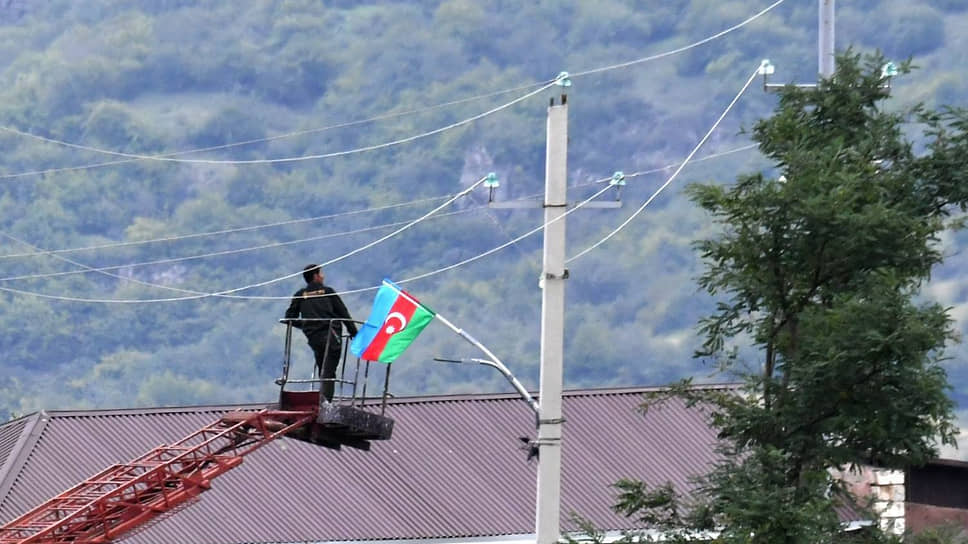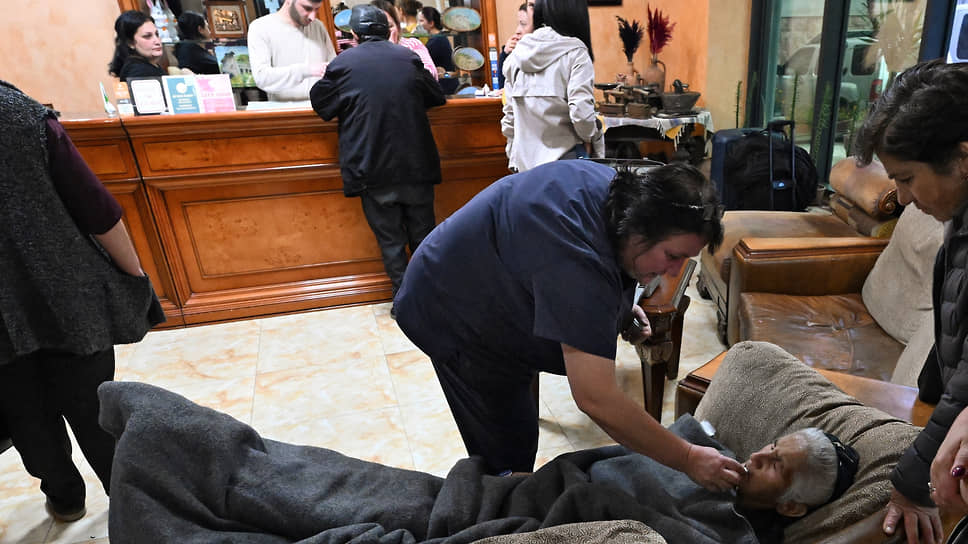“When looking for answers, it is very useful to step out of the role of an older brother” – Kommersant FM
[ad_1]
The process of moving Armenians from Nagorno-Karabakh to Armenia has come to an end. More than 100 thousand people arrived from the unrecognized republic, said the office of Prime Minister Nikol Pashinyan. According to official data, until recently about 120 thousand Armenians lived in Karabakh. IDPs receive one-time assistance from Yerevan in the equivalent of $254. Approximately another half of this amount is due to each person for rent and utility payments. The government of Armenia provides housing for citizens who do not have a predetermined place of residence. According to the latest information, there are more than 47 thousand of them. Kommersant FM columnist Mikhail Gurevich believes that along with the exodus of the Armenian population from Karabakh, Moscow’s influence in Transcaucasia is also dwindling.
Officially, the Nagorno-Karabakh Republic will end its existence on January 1, 2024, however, judging by the number of refugees who crossed the border with Armenia, it can already be stated today that not only the quasi-state formation, but also simply the presence of ethnic Armenians in Artsakh has been interrupted. Never say “never”, and therefore there is no point in ending this story.
But it is still difficult to imagine the conditions under which the residents of Stepanakert will agree to return, accept Azerbaijani citizenship and continue life as if nothing had happened. A similar situation is developing with Russian influence in the region. Nominally, everything is in order: Armenia continues to be a member of the CSTO, Russia maintains apparently excellent relations with Azerbaijan, and there is even rapprochement with Georgia.
But it is difficult to escape the impression that Moscow is losing its position in the region, losing both to Turkey and its sworn partners from the European Union. By the way, a discussion of further prospects for Armenian-Azerbaijani relations will take place on October 5 in Granada, Spain, within the framework of the third summit of the European Political Community. In addition to Azerbaijani leader Ilham Aliyev and Armenian Prime Minister Nikol Pashinyan, the meeting will be attended by leaders of Germany, France and the EU. Russian representatives are not expected in Spain.
In Kremlin statements regarding Karabakh, there are often proposals for the Armenian leadership to reflect on the mistakes they have made and take upon themselves all the blame and responsibility. It seems that Moscow should do similar work to correct its mistakes and ask the question: what can we guarantee to our allies, what real obligations are we ready to take on?
What is keeping post-Soviet countries from completely reorienting toward other centers of power, besides nostalgia and declarations of a great common past? In search of answers, it is very useful to step out of the role of big brother and listen to what is being said in Armenia today. Even after the second Karabakh war, despite all the grievances, society believed that the country had no future without an alliance with Russia. Just a couple of weeks ago, people believed that the agreement on the deployment of a peacekeeping contingent was not an empty phrase, and Moscow has interests thanks to which Artsakh will continue to exist.
Today, the discussion has taken a completely different format. More and more politicians are declaring that the CSTO is not a defense union, but some kind of incomprehensible set of letters. They even started talking about the 102nd military base located in Gyumri and Yerevan. They say that as long as there is a Russian military presence, it will not be possible to plan military cooperation with the West. And there is no other option left.
As Pashinyan argued in an interview with the Italian La Republicca, dependence in the security sector on one place is a strategic mistake. For these words, the Armenian Prime Minister was never criticized in Moscow. Instead of thinking about how we turned from a strategic ally into a strategic mistake. And we should think about this urgently, before we hear similar words from other, seemingly still friendly post-Soviet capitals.
Everything is clear with us – Telegram channel “Kommersant FM”.
[ad_2]
Source link










